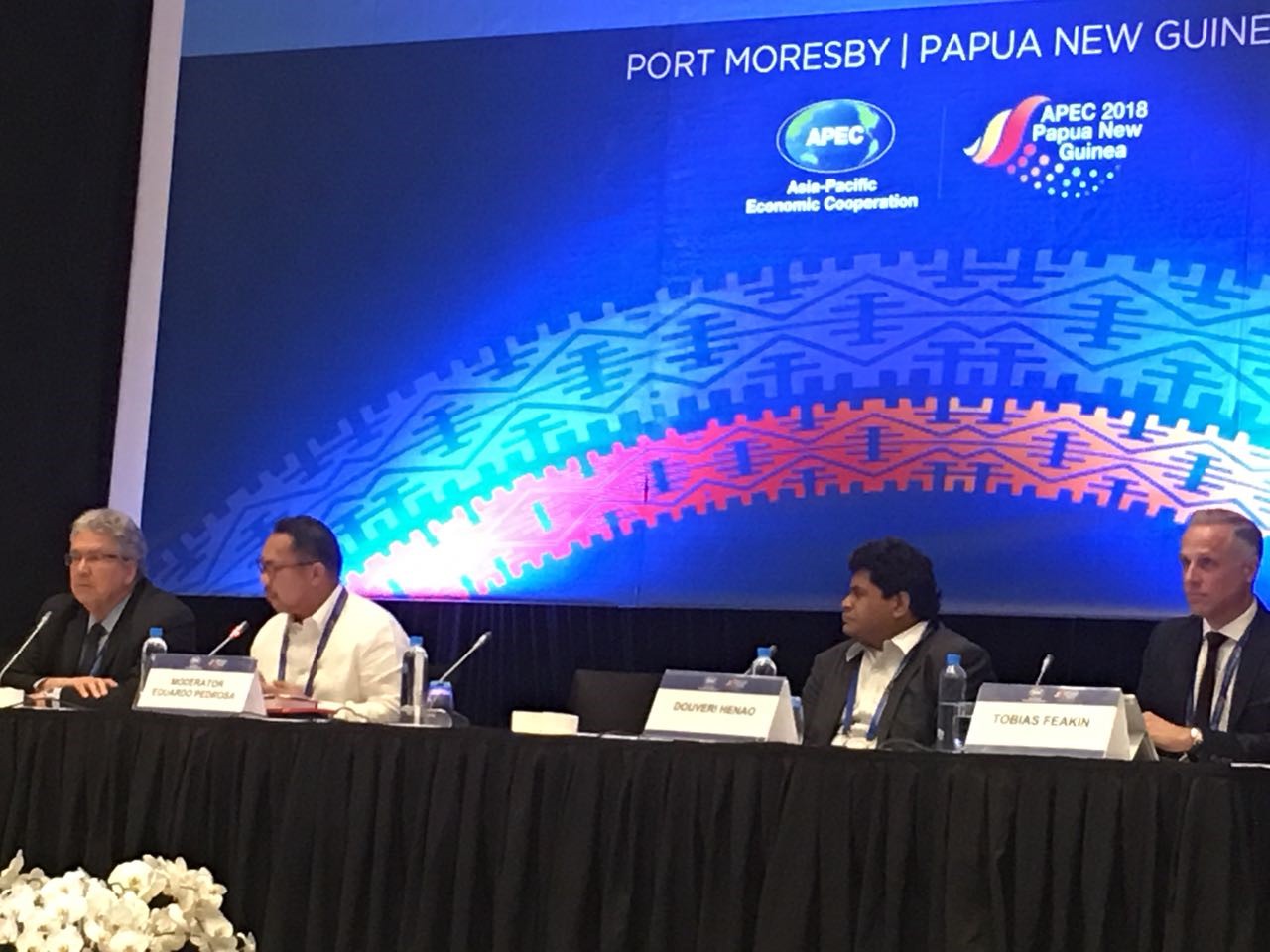Building on the APEC Internet and Digital Economy Roadmap
 APEC officials and experts gathered in Port Moresby for a High Level Policy Dialogue on the Digital Economy. The objective of the session was to discuss how to build on the APEC Internet and Digital Economy Roadmap adopted by APEC in 2017. Mr Eduardo Pedrosa, Secretary General of the PECC International Secretariat moderated keynote addresses from: Professor Peter Cowhey, Dean and Qualcomm Endowed Chair in Communications and Technology Policy, University of California, San Diego; Mr. Douveri Henao, Executive Director, Business Council of Papua New Guinea; and Mr. Tobias Feakin, Ambassador for Cyber Affairs, Australia.
APEC officials and experts gathered in Port Moresby for a High Level Policy Dialogue on the Digital Economy. The objective of the session was to discuss how to build on the APEC Internet and Digital Economy Roadmap adopted by APEC in 2017. Mr Eduardo Pedrosa, Secretary General of the PECC International Secretariat moderated keynote addresses from: Professor Peter Cowhey, Dean and Qualcomm Endowed Chair in Communications and Technology Policy, University of California, San Diego; Mr. Douveri Henao, Executive Director, Business Council of Papua New Guinea; and Mr. Tobias Feakin, Ambassador for Cyber Affairs, Australia.
The digital economy and the policies needed to facilitate its growth are coming into sharper focus, as last year’s report on the State of the Region noted “The extent to which this transformation is taking place is leading some to conclude that the digital economy is not only the future of our economy, it is the economy. Goods and services are being digitized, not only in how they are developed, but also in how they are delivered and consumed, transforming how the economy works, and how individual sectors, such as health, education, security, finance, and even governance.”
Professor Cowhey suggested that it was essential that APEC: remove barriers to integrating the region-wide digital economy; the digital economy expands based on fair & non-discriminatory terms while advancing social and economic inclusion, privacy & security; and that APEC policies adopt new approaches in response to rapidly changing technologies. He identified three critical barriers to the expansion of the benefits of the digital revolution: trade rules and regulations that are not “technology neutral” regarding the supply of cross-border goods & service; trade restrictive limitations on uses and locations of data & computing networks; and trade restrictive issues tied to cybersecurity & privacy regulations. To move forward APEC should combine both top-down and bottom-up approaches that: enhance market integration; allow for reasonable variations in domestic policies; be fair and non-discriminatory; and recognize growing role of civil society in problem solving.
Ambassador Feakin highlighted the role that digital technologies can play as enablers of sustainable development and economic growth and the role of APEC as a vehicle for identifying and fostering new sources of growth, including efforts to strengthen the integration of economic and business activities in the region. He urged APEC officials to work together to actively shape a forward work program that maximizes opportunities for economic growth through digital trade and technology for development.
Mr Douveri Henao, Executive Director of the Business Council of Papua New Guinea underscored the importance of the role that the business role can play in economic development in the digital economy era. He used the example of Papua New Guinea to explain the many developmental challenges that regional economies face that require the active participation of the business community in solving problems. He announced that the Papua New Guinea business community had initiated a “ Business4SDG Dashboard” to create a space where business’ corporate social responsibility programs can be matched with developmental needs as identified with the Sustainable Development Goals.
